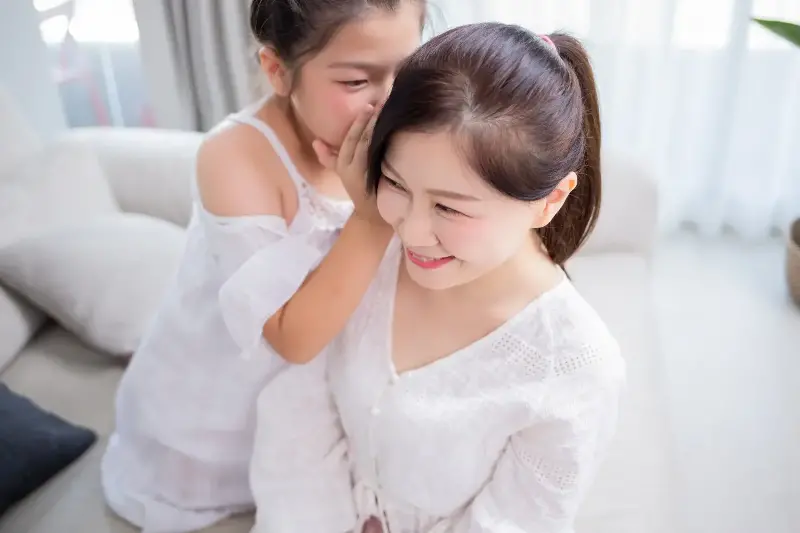In our busy modern lives, finding authentic connection with our children can feel like searching for a rare gem. Many parents in Southeast Asia and beyond are juggling work, family duties, and societal expectations—all while wishing to understand their children better. The secret to unlocking this true parental connection lies not in giving advice or fixing problems swiftly, but in the simple, often underestimated act of listening.

The Hidden Power of Mindful Listening
Listening goes far deeper than just hearing words; it's an act of attention and empathy. Research shows that when children feel genuinely heard, their brains release oxytocin, a hormone associated with trust and bonding. This biological response helps children feel safe, understood, and valued. When a child perceives that their parent is genuinely listening, they are more likely to open up about struggles, big or small.
Mindful listening is about being present. This means putting away distractions—switching off your phone, pausing household chores, and truly focusing on your child's words and emotions. Southeast Asian cultures often emphasise family togetherness, but the quality of attention matters just as much as the quantity of time spent together. Eye contact, nodding, and gentle verbal cues like “I see” or “Tell me more” can encourage children to share more deeply.
Why Children Hide Their Troubles—and How Listening Unlocks Them
Children, especially in collectivist societies such as those in Southeast Asia, may feel pressure to maintain harmony and avoid “losing face.” They might hide their anxieties, struggles at school, friendship issues, or emotional distress to protect family pride or avoid burdening parents. This concealment can manifest as behaviour changes—withdrawal, anger, or even physical complaints.
Here’s where active listening truly shines. By offering a judgment-free ear, parents create a space where children feel it is safe to admit fears or failures without disappointment or scolding. According to psychologist Dr Goh Chee Leong, “Children often test the waters with small disclosures. If adults respond with patience and empathy, children will entrust them with greater worries.” Simply said, every patient conversation is a stepping stone to deeper trust.

Listening: More Than Solution Giving
Many parents jump in with advice the moment a problem surfaces, eager to save their children from pain. But children don’t always need fixes—they need understanding. Imagine a teenager upset after a fight with friends. Quick solutions may fall flat, but validating their emotions (“That sounds really tough, I can see why you’d be upset”) can help them process and eventually find their own resilience.
Active listening supports a child’s emotional intelligence, teaching them to recognise and communicate feelings. This skill is invaluable in adulthood, linked to better self-regulation and stronger relationships. Lecturing, on the other hand, can leave children feeling invalidated or reluctant to share again.
Building Listening Rituals in Everyday Life
True connection happens in ordinary moments: after school over a shared snack, commuting together, or at bedtime. These routines create predictable opportunities for children to talk. In Southeast Asia, even a quick meal at the table or a visit to the night market can be transformed into a listening ritual with a little intentionality.
Parents can foster openness by sharing their own feelings and experiences in a developmentally appropriate way. Saying, “Today I felt nervous at work,” models vulnerability and shows that everyone has emotional ups and downs. This approach also chips away at stigma around mental health, a topic gaining more visibility across the region.

Practical Listening Tips for Parents
For parents wanting to improve their listening skills, start small:
- Set aside five uninterrupted minutes each day to check in with your child.
- Use open-ended questions such as “What was the best part of your day?” instead of “Did you do your homework?”
- Avoid interrupting or immediately offering solutions. Instead, reflect back what you hear: “So you were worried you might not make the team?”
- Be patient with silence; children sometimes need time to gather their thoughts.
- Acknowledge and accept feelings, even if they seem irrational or minor. Every feeling matters to a child.
The Lifelong Benefits of a Listening Parent
Children who feel deeply listened to grow up with enhanced self-worth and resilience. They are more capable of navigating challenges because they trust that their family will support, not judge them. This foundation of trust often carries into adolescence and young adulthood, reducing the risk of poor mental health or risky behaviour.
In a world where parents face pressure to be perfect providers, remember that your greatest tool is often the simplest: a listening ear. By making space for your child’s voice, you are sowing seeds of confidence, compassion, and lifelong connection—a legacy that will outlast every test score, trophy, or achievement. And in the end, isn’t that what parenting is really all about?
